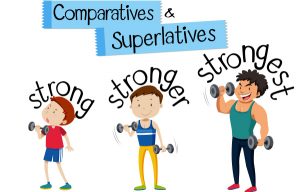Here you will learn the difference between stand up and get up.
Stand up and get up are two confusing English verbs. And in many languages, there is no difference between stand up and get up. So often students ask this question,
Which verb do I use when I want to express the first thing I do in the morning? Do I have to say I get up or I stand up?
Harry
Table of Contents
stand up vs get up - video lesson
Share and help other students to improve English language skills.
Today I have two confusing English verbs for you:
to get up and to stand up
Students are always getting these two verbs confused.
They often tell me that they stand up in the morning when they wake up.
✔️ When we wake up, we get up.
❌ When we wake up, we stand up.
We get out of bed, we get up, we stretch, we go and have a shower or whatever we do.
Intermediate to Advanced English Marathon

INSANITY: doing the same thing over and over again and expecting different results.
Albert Einstein
- What you'll learn:
- better understanding of more complex grammar structures
- advanced English vocabulary words
- British & American slang
- perfect your listening skills through practing different accents
- This marathon is for you if you're:
- stuck at an intermediate English level
- tired of confusing explanations
- a mature student
- shy & introverted
So when you’re talking about rising in the morning, waking up, we always use the phrasal verb to get up.
To get up out of bed.
We get up and leave our bed.
When we stand up, we move to a standing position when somebody comes into the room.
When a teacher enters the room, we stand up from our seats.
difference between stand up and get up

Share and help other students to improve English language skills.
Of course, they can sound the same.
✔️ We can get up out of a chair.
✔️ We can stand up when somebody comes in.
Stand up for yourself is another expression that we use.
Stand up for your rights.
Meaning: be strong, stand up for what you believe in
We don’t say
❌ Get up for what you believe in.
✔️ Stand up for what you believe in.
So get up in the morning, leave your bed.
Stand up for what you believe in.
Stand up when somebody comes into the room.
So you get up in the morning (not stand up), but you can either get up or stand up when you rise from a seated position in a chair/sofa (but with different implications).
book your trial English Lesson
difference between stand up and get up
to get up
1. to wake up and leave your bed
Example:
I woke up at 7, but then I realised it was Saturday, so I didn’t get up until 8.
2. to change your position from a lying or sitting one with the intention to move away
Example:
I got up from my chair and took a deep breath.
to stand up
to change your position from a lying, sitting, kneeling to a standing one; at the end, you are standing on your feet but you don’t move away
Example:
He stood up to greet me with a hearty smile and handshake.
to wake up
to stop sleeping and become awake
Example:
I usually wake up at 5 o’clock in the morning.
How to use stand up and get up
Everybody stood up and clapped all the way through the national anthem.
I stood up and hit the top of my head pretty hard on the corner of the shelf.
Should a man stand up when a woman enters the room?
Today we got up really late. Fortunately, we still got some breakfast at our hotel.
I get up no later than 7 am on the weekends.
More information
For more information on English grammar rules, English collocations and English idioms, check out the links below:
How to negotiate on a price in English
Free materials for intermediate and advanced English are always available at Learning English with the BBC.
You will love these English lessons

Comparatives and Superlatives in English
In this post you will learn everything you need to know about comparatives and superlatives in English. It also includes


How to say THANK YOU in English
We were all taught (usually by our parents) to say please and thank you when we wanted something (please) and


14 English Adjectives For Describing Relationships
Learn English adjectives for describing relationships. 14 English adjectives for relationships. Negative and positive adjectives. Listen to the podcast Speak